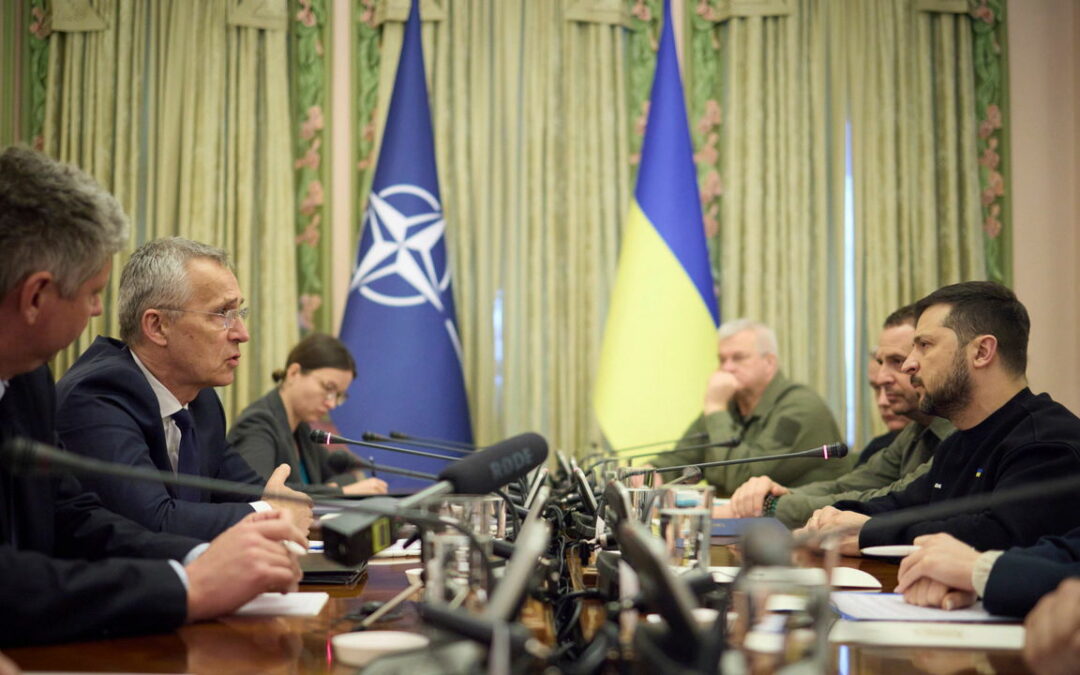FOR MORE than a year the West’s effort to help Ukraine has run between two tracks: deny Russia a victory but avoid a direct war between it and NATO. Ukraine wants more, and applied to join the NATO alliance in September 2022. It will be denied for now. Instead, as NATO prepares for its summit in Vilnius on July 11th and 12th, Western leaders are aiming to give Ukraine lasting “security guarantees”. What might they be and will they make a difference?
For Ukraine the best security guarantee is membership of NATO and its promise of mutual defence: Article 5 of the organisation’s founding treaty holds that an attack on one member is an attack on all. But America, in particular, is worried that admitting Ukraine while it is at war would, in effect, mean NATO countries having to fight against Russia. Anything less than that—declaring that Article 5 does not apply for now, or that it does not cover the frontline—risks nullifying the commitment to mutual defence.
Instead Western allies are discussing ways to help Ukraine defend itself, by itself, now and in the future. Their aim is to strengthen the credibility of the West’s promise to support Ukraine “for as long as it takes”, and thereby sap Russia’s hope that waging a long war could turn the tables in its disastrous invasion. Another objective, barely disguised, is to lock in Western assistance to Ukraine should Donald Trump—or a Trumpist Republican—win America’s presidential election next year.
An early version of the guarantees was published last year in the “Kyiv Security Compact”, a proposal by Anders Fogh Rasmussen, a former secretary-general of NATO, and Andriy Yermak, an adviser to Ukraine’s president, Volodymyr Zelensky. It set out, among other things, a “multi-decade effort of sustained investment in Ukraine’s defence industrial base, scalable weapons transfers and intelligence support from allies, intensive training missions and joint exercises under the European Union and NATO flags.” It also envisaged guarantors using “all elements of their national and collective power” to respond to an attack. This left open the possibility of Ukraine’s friends intervening more directly than hitherto.
Even the label for such a commitment is contentious. America worries that “guarantees” is too strong, implying a commitment to defend Ukraine directly. Ukraine regards one alternative, “assurances”, as too weak. That was the term used in the Budapest Memorandum of 1994, in which America, Britain and Russia pledged that Ukraine would be safe from attack in return for agreeing to remove Soviet nuclear weapons from its soil. The assurances proved worthless.
Eric Ciaramella, who has worked on Ukraine policy at the White House under both Democratic and Republican administrations, proposes more neutral words such as “arrangements” or “commitments” in a recent paper for the Carnegie Endowment for International Peace, an American think-tank. He believes that the Kyiv Security Compact should be made more binding, not least through “strong political and legal codification”. He also calls for “mechanisms for political consultations, information-sharing and co-ordination”; and “clear linkage to Ukraine’s EU accession process and post-war reconstruction”. The idea is to borrow from the way America arms and supports the likes of Israel and Taiwan—though Ukraine’s situation is different. For one thing, Israel is a nuclear power facing non-nuclear ones; Ukraine has no nukes and its foe has the world’s biggest nuclear arsenal.
The promises made to Ukraine are unlikely to come directly from NATO. But they will be bilateral and collective—perhaps coming from the G7 but more probably the “quad” of America, Britain, France and Germany. Some European officials say different aspects of the package—strengthening the defence of Ukraine’s skies or seas, for instance—might be led by different countries according to their capacity and appetite for risk.
For Ukraine and its friends, the value of such commitments will be judged on two measures. Do they strengthen Ukraine’s ability to deliver a decisive blow now that Russian forces are in disarray after a rebellion by the Wagner mercenary group? And will they bring Ukraine closer to NATO, rather than divert it into an alternative to membership? ■









